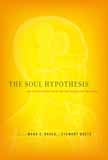Soul Hypothesis and the Failure of Reductionism
December 23, 2010
 In the Soul Hypothesis: Investigations into the Existence of the Soul (Continuum), co-editors Mark C. Baker and Stewart Goetz have assembled an impressive interdisciplinary team of scholars to address questions about the existence and nature of the soul.
In the Soul Hypothesis: Investigations into the Existence of the Soul (Continuum), co-editors Mark C. Baker and Stewart Goetz have assembled an impressive interdisciplinary team of scholars to address questions about the existence and nature of the soul.
“The Soul of the Matter” - Charles Taliaferro
“Minds, Brains and Brains in Vats” - Daniel N. Robinson
“Brains and Souls; Grammar and Speaking” - Mark Baker
“Making Things Happen: Souls in Action” - Stewart Goetz
“Energy of the Soul” - Robin Collins
“The Measure of All Things: Quantum Mechanics and the Soul” - Dean Zimmerman
“From Seeing to Seer” - Hans Halvorson
“Souls Beastly and Human” - William Hasker
“A Scientific Case for the Soul” - Robin Collins
You can preview the book here.
The book is unique is combining philosophical and scientific arguments for dualism, and the result is a rigorous, exciting, persuasive presentation of the issues and a stimulating challenge to so much of the reductionism that reigns in the sciences. As was noted in a recent review of the book in the WSJ,
Sooner or later, the contributors to "The Soul Hypothesis" warn, scientists will pinpoint the exact three neurons whose firing accompanies the thought of our deciding to make a phone call or, if you prefer, deciding to get up and get a beer from the refrigerator. As ever more such micro-couplings are observed, we will—so scientists tell us with unseemly glee— gradually come to see that our cherished conscious life is nothing but a long series of electrical impulses, not an autonomous realm of free will and free thought. Co-editor Mark C. Baker cites the psychologist Steven Pinker, who finds it plausible to say that neural "activity in the brain" simply "is the mind."
The book's contributors set out this scientific challenge fully and engagingly, but they also expose its fallacies. They note, for instance, that even if two things differ in their essential nature, as do mental thoughts and physical actions—or legislatures and laws—there is no reason why the one can't cause the other. As David Hume argued, what establishes our idea of cause and effect is the regular "conjunction" of two events. That a physical act regularly follows a mental decision suggests, as co-editor Stewart Goetz writes, that the one is "causing" the other and that voluntary human action exists.
The Soul Hypothesis is an excellent text that is sure to provoke a vigorous dialog about its content. I highly recommend it.


[…] Here’s the new book on J.P. Moreland’s web site. […]